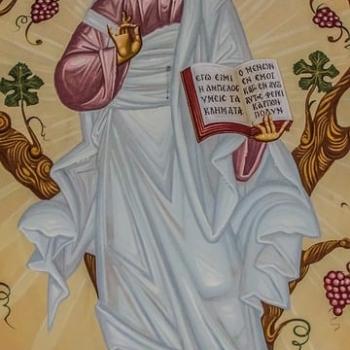
Tis the season when atheists and secularists of every stripe break out the not-so-time-honored claim that Christmas is nothing more than a retelling of various pagan mythologies.
This essay aims to show that not only does Christmas not have pagan origins but that many of the pagan festivals were placed on the calendar after the advent of Christmas.
In order to accomplish this goal, I will briefly explain paganism and review some of the arguments that support the pagan-Christmas connection. Lastly, I will argue that Christmas, in particular, and Catholicism, in general, do not have pagan origins and, indeed, are antithetical to paganism.
The term pagan can be fluid as it often encompasses various faith traditions. While it often has a derogatory connotation, paganism designates any religion or belief system not associated with the three biblical faiths of Christianity, Judaism, and Islam. As there are an estimated four thousand religions worldwide, the term pagan can incorporate a vast number of people.
Since the subject of this essay is the alleged causal relationship between paganism and Christmas, it suffices to limit myself to those practices that are commonly considered to be precursors to Christmas. Before commencing, however, providing a Catholic and, therefore, biblical definition of Christmas may be proper.
Specifically, Christmas refers to the Feast of the Nativity of Jesus Christ. Matthew’s Gospel depicts the events that would eventually be called Christmas. “Now, this is how the birth of Jesus Christ came about. When his mother Mary was betrothed to Joseph, but before they lived together, she was found with child through the Holy Spirit. Joseph, her husband, since he was a righteous man yet unwilling to expose her to shame, decided to divorce her quietly. Such was his intention when, behold, the angel of the Lord appeared to him in a dream and said, “Joseph, son of David, do not be afraid to take Mary, your wife, into your home. For it is through the holy Spirit that this child has been conceived in her. She will bear a son, and you are to name him Jesus because he will save his people from their sins.’ All this took place to fulfill what the Lord had said through the prophet: ‘Behold, the virgin shall be with child and bear a son, and they shall name him Emmanuel,’ which means ‘God is with us.’ When Joseph awoke, he did as the angel of the Lord had commanded him and took his wife into his home. He had no relations with her until she bore a son, and he named him Jesus.” (Matthew 1:18-25).
In the early Church, Christmas was celebrated along with the Epiphany. However, in A.D. 200, Saint Clement of Alexandria (150-215) refers to a special feast on May 20, and the Latin Church began observing it on December 25.
It must be admitted that the date of December 25 is only approximate. According to early Christian authors like Dionysius Exiguus and Hippolytus of Rome, it was believed that Jesus was conceived on the same date he died, to wit, March 25. Nine months from March 25 is December 25.
Having sought to provide a basic definition of Christmas and the dates involved, I turn to those arguments that claim Christmas has pagan origins.
The most common argument that Christmas is pagan is predicated on the ancient Roman celebration called Sol Invictus (the unconquered sun). The argument is that since this festival was celebrated on December 25 in conjunction with the winter solstice celebrations, Christianity adopted and modified it for its own interests. However, an examination of the festival itself and the dates involved quickly debunks this claim.
First, the ancient Romans had no concept of original sin. Therefore, the need for a Savior to be born to save them from sin would have been entirely foreign to most Romans.
Second, Sol Invictus was not placed on December 25 until 354 AD. Before this, the festivals were held on August 8th, 9th, 28th, and December 11. (Steven Hijmans, “Sol Invictus, the Winter Solstice, and the Origins of Christmas,” Mouseion, Number 47/3 (2003), 277-298).
The second Roman ritual frequently considered a precursor to Christmas is Saturnalia, celebrating the agricultural god Saturn. While Saturnalia was celebrated in mid-December, there is no evidence that it was held on December 25.
Lastly, there is the Yule festival. The festival of Yule was placed on December 25 by King Haakon the Good in the 10th century A.D. to coincide with Christmas. (Sturluson, Snorri. Heimskringla; Or, The Chronicle of the Kings of Norway. DigiCat, 2022).
The one thread that critics try to hold onto is that several pagan practices are similar to Christmas and that they pre-date Christianity. There are several problems with such a position.
First, as was shown above, the pagan festivals are not that similar to Christmas. Furthermore, even if those practices were similar, they are not evidence of Christianity appropriating those practices to Christmas. Put differently, similarity does not equate to identity. After all, humans share about eighty-five percent of their DNA with dolphins, yet very few would argue that the two species are similar.
The second error is one of causality and commits one of the common fallacies in logic, post hoc, ergo propter hoc (after this, therefore, because of this). Though an event may occur prior to another, it is not sufficient to claim that the prior event caused the subsequent one. Within the context of this essay, it is fallacious to argue that because some pagan practices occurred around December 25 and before the advent of Christianity, they are the cause of Christmas. Perhaps the most persuasive argument against Christmas having pagan origins is that most pagan festivals were placed on the calendar long after the advent of Christianity.
In conclusion, I would like to point out the radical strangeness of Christmas, particularly in comparison to the pagan traditions. Where the pagan festivals involved the worship of a pantheon of gods that represented various aspects of nature (e.g., the sun), Catholicism asserts that Christmas is the birth of the God/man, the entering into the temporal world of the eternal God. Moreover, the God of the Bible is the cause of the forces of nature that paganism incorrectly defied.
In this essay, I have sought to argue against the claim that Christmas is nothing more than a retelling of various pagan beliefs and festivals. It is my hope that I have provided enough evidence to disabuse the belief that Christmas has pagan beginnings.













